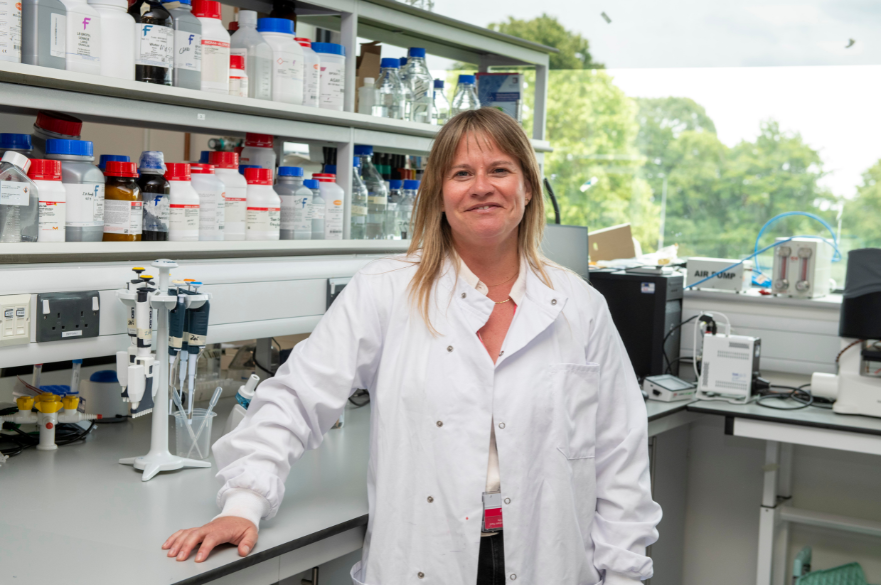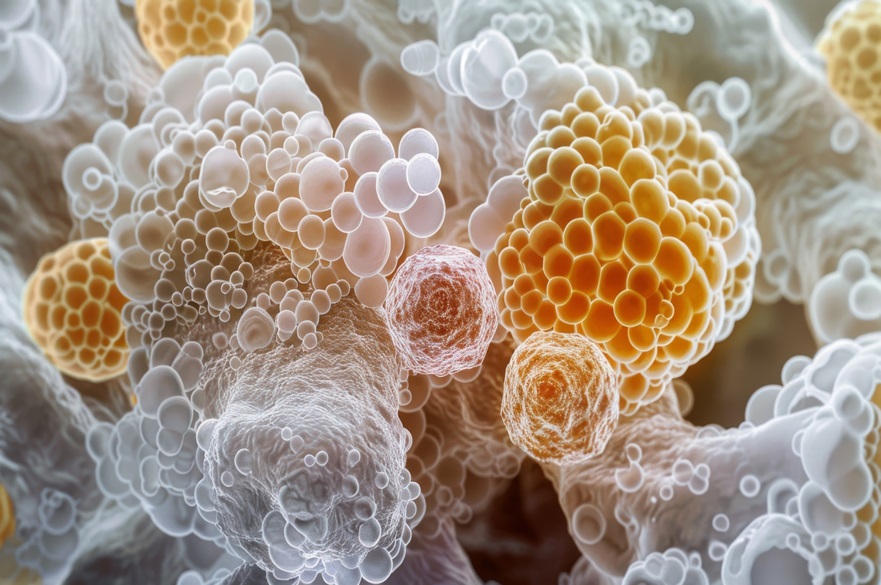Role
Principal Investigator
Career overview
Zoi started her career as a nutritionist in Greece before moving to UK to undertake an MSc in Human Nutrition in Aberdeen University. She moved to the University of Edinburgh where she won a 4Y Wellcome Trust funded scholarship and obtained an MRes in Genetic basis of disease, followed by a Wellcome Trust funded PhD in which she delineated the detrimental role of stress hormones on adipose tissue and liver function with PhD mentors Profs Karen Chapman and Jonathan Seckl. Zoi then won a Sir Henry Wellcome immediate postdoctoral fellowship to work in Oxford University under the mentorship of Sir Prof Peter Ratcliffe, investigating the causal role of reduced adipocyte oxygen supply in the development of metabolic disease. She then obtained a BHF transition fellowship award, and an Edinburgh Scientist Academic Track Fellowship to explore the oxygen sensing pathways in obesity-related diabetes and cancer that led to her securing a Lecturer position in 2022. She moved to NTU in spring 2023 as an Associate Professor in Metabolic Health.
Research areas
adipose tissue function, hypoxia signalling, obesity, metabolism, fatty liver, obesity-related cancers
External activity
Chair Science Committee, Society for Endocrinology (SfE), British Endocrinology Society programme committee, SfE Leadership and Development awards panel, Honorary Lecturer Edinburgh University, Visiting scientist Dresden University of Technology (TU), Dresden, Germany, Reviewer BHF, SfE grants, served as Editor in J of Endocrinology and Molecular Endocrinology and currently is a Guest Editor Current Opinion in Endocrinology and Metabolism.
Publications
(*corresponding)
1. Wang R, Gomez Salazar M, Pruñonosa Cervera I, Coutts A, French K, Pinto MM, Gohlke S, García-Martín R, Blüher M, Schofield CJ, Kourtzelis I, Stimson RH, Bénézech C, Christian M, Schulz TJ, Gudmundsson EF, Jennings LL, Gudnason VG, Chavakis T, Morton NM, Emilsson V, Michailidou Z. Adipocyte deletion of the oxygen-sensor PHD2 sustains elevated energy expenditure at thermoneutrality. Nat Commun. 2024 Aug 29;15(1):7483. doi: 10.1038/s41467-024-51718-7. PMID: 3920982.
2. Aird R, Wills J, Roby KF, Benezech C, Stimson R, Wabitsch M, Pollard J, Finch A, Michailidou Z*. Hypoxia-driven metabolic reprogramming of adipocytes fuels cancer cell proliferation. Front Endocrinol (Lausanne). (2022) Oct 18;13:989523. doi: 10.3389/fendo.2022.989523. eCollection 2022.
3. Marlène S. Magalhaes, Peter Smith, Jordan R. Portman, Lucy H. Jackson-Jones, Calum C. Bain, Prakash Ramachandran, Zoi Michalidou, Laura Denby, Roland Stimson, Neil C. Henderson, Stephen J. Jenkins, Cécile Bénézech. “Role of Tim4 in the regulation of ABCA1+ adipose tissue macrophages and post-prandial cholesterol levels” Nat Commun. Jul 21;12(1):4434 (2021).
4. Marijana Todorčević, Ari R Manuel, Luke Austen, Zoi Michailidou, Jonathan M Hazlehurst, John R Stradling, Fredrik Karpe. “Markers of adipose tissue hypoxia are elevated in subcutaneous adipose tissue of severely obese patients with obesity hypoventilation syndrome but not in the moderately obese” Int J Obes (Lond). Jul;45(7):1618-1622 (2021).
5. Zou X, Ramachandran P, Kendall TJ, Pellicoro A, Dora E, Aucott RL, Manwani K, Man TY, Chapman KE, Henderson NC, Forbes SJ, Webster SP, Iredale JP, Walker BR, Michailidou Z*. 11βHSD1 deficiency or inhibition enhances hepatic myofibroblast activation in murine liver fibrosis. Hepatology. 67(6):2167-2181 (2018).
6. Morton NM, Beltram J, Carter RN, Michailidou Z, et al. Genetic identification of thiosulfate sulfurtransferase as an adipocyte-expressed antidiabetic target in mice selected for leanness. Nature Medicine. 22(7):771-9 (2016).
7. Michailidou Z*, Morton N, José Maria Moreno Navarrete, West C, Stewart K, José Manuel Fernández-Real, Schofield C, Seckl J, Ratcliffe P. Adipocyte Pseudohypoxia Suppresses Lipolysis and Facilitates Benign Adipose Tissue Expansion. Diabetes. 64(3):733-45 (2015).
8. Rog-Zielinska EA, Thomson A, Kenyon CJ, Brownstein DG, Moran CM, Szumska D, Michailidou Z, Richardson J, Thomson I, Owen E, Watt A, Morrison H, Forrester LM, Bhattacharya S, Holmes MC, Chapman KE. Glucocorticoid Receptor is required for fetal heart maturation. Hum. Mol Genet. 22(16):3269-82 (2013). IF 6.1
9. Michailidou Z*, Turban S, Miller E, Zou X, Schrader J, Ratcliffe PJ, Hadoke PW, Walker BR, Iredale JP, Morton NM, Seckl JR. Increased angiogenesis protects against adipose hypoxia and fibrosis in metabolic disease-resistant 11β-hydroxysteroid dehydrogenase type 1 (HSD1)-deficient mice. J Biol Chem. 287(6):4188-97 (2012).
10. Morton NM, Nelson YB, Michailidou Z, Di Rollo EM, Ramage L, Hadoke PW, Seckl JR, Bunger L, Horvat S, Kenyon CJ, Dunbar DR. A stratified transcriptomics analysis of polygenic fat and lean mouse adipose tissues identifies novel candidate obesity genes. PLoS One. 6(9):e23944 (2011).
11. Man TY, Michailidou Z, Gokcel A, Ramage L, Chapman KE, Kenyon CJ, Seckl JR, Morton NM. Dietary manipulation reveals an unexpected inverse relationship between fat mass and adipose 11β- hydroxysteroid dehydrogenase type 1. Am J Physiol Endocrinol Metab. 300(6):E1076-842011(2011).
12. Michailidou Z, Carter RN, Marshall E, Sutherland HG, Brownstein DG, Owen E, Cockett K, Kelly V, Ramage L, Al-Dujaili EA, Ross M, Maraki I, Newton K, Holmes MC, Seckl JR, Morton NM, Kenyon CJ, Chapman KE. Glucocorticoid receptor haploinsufficiency causes hypertension and attenuates hypothalamic-pituitary-adrenal axis and blood pressure adaptions to high-fat diet. FASEB J. 22(11):3896-907 (2008).
13. Sai S, Esteves CL, Kelly V, Michailidou Z, Anderson K, Coll AP, Nakagawa Y, Ohzeki T, Seckl JR, Chapman KE.Mol Endocrinol. Glucocorticoid regulation of the promoter of 11beta-hydroxysteroid dehydrogenase type 1 is indirect and requires CCAAT/enhancer-binding protein-beta. Mol Endocrinol. 22(9):2049-60 (2008).
14. Michailidou Z, Coll AP, Kenyon CJ, Morton NM, O’ Rahilly S, Seckl JR, Chapman KE. Peripheral mechanisms contributing to glucocorticoid hypersensitivity in Pomc-null mice treated with corticosterone. J Endocrinology. 194, 161-170 (2007).
15. Michailidou Z, Jensen MD, Dumesic DA, Chapman KE, Seckl JR, Walker BR, Morton NM. Omental 11beta-hydroxysteroid dehydrogenase 1 correlates with fat cell size independently of obesity. Obesity. 15(5); 1155-1160 (2007).
16. Bujalska IJ, Draper N, Michailidou Z, Tomlinson JW, White PC, Chapman KE, Walker EA, Stewart PM. Hexose-6-phospate dehydrogenase confers oxo-reductase activity upon 11-beta hydroxysteroid dehydrogenase type 1. J Mol Endocrinol. 34, 675-684. (2005).
Invited Reviews
1. Michailidou Z.*, Mario Gomez Salazar, Alexaki VI*. Role of innate immune cells in the adipose tissue. J Innate Immun.14:4–30 (2022).
2. Iryna Pyrina, Kyoung-Jin Chung, Zoi Michailidou, Michael Koutsilieris, Triantafyllos Chavakis, Antonios Chatzigeorgiou. “Fate of adipose progenitor cells in obesity-related chronic inflammation”. Frontiers in Cell and Developmental Biology.8:644 (2020)
3. Michailidou Z. “Fundamental roles of hypoxia signaling in metabolism and inflammation in obesity and beyond”. Current Opinions in Physiology. Vol2, pp39-43 (2019).
4. Michailidou Z.* & Seckl JR. “Adipose tissue hypoxia in regulation of angiogenesis & obesity” in Angiogenesis in Adipose Tissue, Cancer Research (Springer), VIII, 378, pp 247-262 (2013).
Press expertise
Scientists find key to fat cells (thetimes.co.uk)
https://www.express.co.uk/news/uk/532443/Protein-fat-vital-organ-key-obesity

